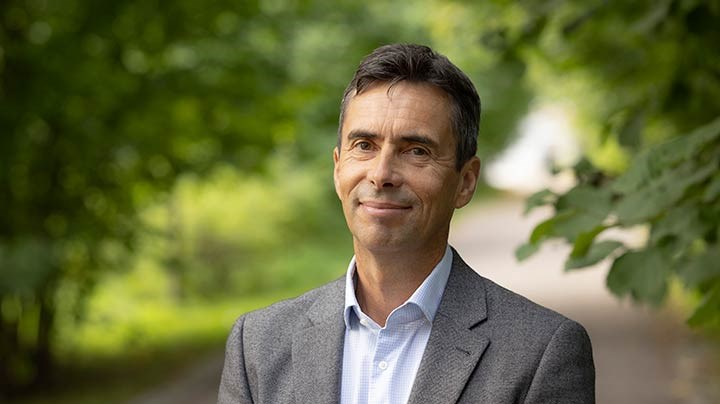Andreas Bergh

Andreas Bergh is professor of education. One of his research projects deals with how school activities have increasingly become the subject of new and strengthened legal regulations.
“A new legal framework for schools does not mean that the complexity of their activities diminishes, only that it’s regulated in new ways,” he says.
1964 Born in Örebro
2010 Obtained his PhD in education at Örebro University with his thesis What does quality do to education? Different meanings of the concept of quality and their consequences for education
2015 Docent in education, Uppsala University
2023 Professor in education, Uppsala University
2023 Professor in education, Örebro University
In this research project, the relationship between juridification and education is central. A key starting point is that the mandate that teachers – as professionals – were previously entrusted with has been increasingly contained within various systems of regulation and control. The project aims to contribute theoretical development and empirical-based knowledge about the opportunities and challenges that arise when legal governance and educational activities converge.
Andreas Bergh’s research concerns, in broad terms, the relationship between education and society, with an interest in how various conditions can enable or challenge educational activities and professional actions.
“Knowledge about the goals and purposes assigned to education and the content selected is of great importance for the development of individuals, groups, society, and democracy. This also includes how education is organised and enacted,” says Andreas Bergh.
“Quality” changed how education is perceived
With an interest in educational policy language usage, Andreas Bergh’s thesis examined how the concept of quality became integrated into Swedish education and demonstrated how “quality” opened up for changed perceptions of what education is, can, or should be.
Later, he examined various complex qualities that cannot be easily clarified, regulated, or measured. This involved values, anti-racism, and higher education pedagogical development. He studied how they are dealt with in various sectors of the education system, and ultimately locally, by teachers and other professional groups.
Approaches to counteract segregation of schools
In another project, various types of local initiatives to counteract the segregation of schools are studied. While education is to be equivalent and promote all pupils’ development and learning, it has become increasingly evident that the contemporary organisation of the education system contributes to increased segregation of children and youth. The consequences are observable both in terms of dividing up pupils by socio-economic and ethnic background and through increased differences between schools in terms of goal achievement.
“While there is relatively good knowledge available on the causes and consequences of segregation of schools, this project contributes knowledge about local initiatives to counteract this segregation and how they, in turn, are affected by various contextual conditions,” says Andreas Bergh.
“Teachers’ revolt” on Facebook
Another project focuses on the “teachers’ revolt” Facebook groups, aimed at studying teachers debating in a “virtually extended teachers’ room”. The study is based on research that shows how reform politics have affected conditions for Swedish schools. The empirical data provides direct access to extensive material concerning teachers’ experiences and day-to-day reality in school.
“The goal is to understand what the teachers’ revolt on Facebook can tell us about Swedish schools and education in a contemporary era characterised by changes in the Swedish social system. This knowledge is important for politicians, teacher union organisations, and not least for the various professional groups operating within this changed educational setting,” says Andreas Bergh.
